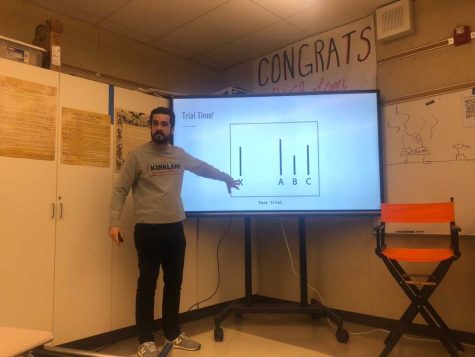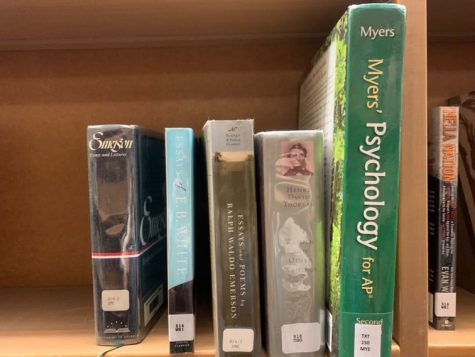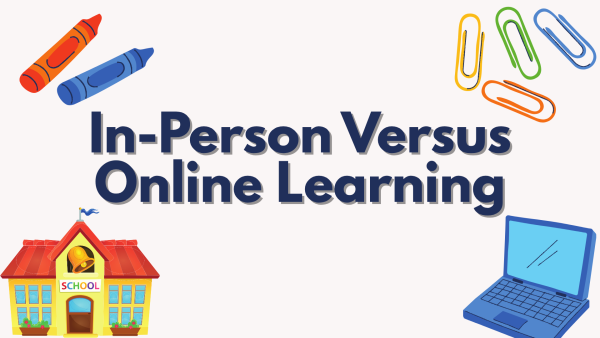Thinking About Thinking: The Overlap of Philosophy and Psychology
Everyone thinks. Of course we do, that’s what happens when we have a brain, but sometimes we forget to pay attention to what we’re thinking—and more importantly—how it affects the way we live.
In psychology and philosophy, there are often hundreds of complicated terms that can deter people from studying them, but in reality, we’re just assigning words to processes that we already do.
Cognitive dissonance, for example, is when someone’s thoughts and actions don’t match up. So what, you may be asking, but “being aware of [cognitive dissonance] is the first step towards an improvement of it,” says Kevin Nicholson, a history teacher at Huntington Beach High School (HBHS) who started teaching AP Psychology this year.
“When your thoughts don’t align with your actions, it feels uncomfortable, there’s a tension, and we automatically try to resolve it. Usually, we change our thoughts. You can think ‘I want to recycle’ and then not recycle, telling yourself ‘well what does that one bottle mean?’” he said.

Although cognitive dissonance can be overwhelming, we can change our actions and learn to understand that we can change. Our thoughts aren’t set in stone, and neither are our actions. Of course, we can’t completely eradicate this system of thinking— it often happens subconsciously, but we can make a step towards improvement.
The investigation of our thoughts often starts out very personal, but it really involves all aspects of day-to-day life. Christopher Soch, an HBHS math teacher who has a degree in philosophy from Stony Brook University, had his interest sparked in philosophy when he read Greek texts with his friends. When he started university and began to study philosophy full-time, he soon realized that there was much more to the study of thinking than he first thought, and his worldview shattered completely. Looking back on it now, he says, “shattering is good, but it’s also a little disorienting. It made me more open, but it also gave me more questions.”
Many of those big, existential questions we, as humans, simply do not have the time to answer properly, but it doesn’t mean we should ignore them completely. There is something important in not knowing, and being unsure of ourselves.
Metacognition is the concept of thinking about what we are thinking, which can be a scary thing to face, but it doesn’t have to be. Recognizing our thoughts and learning to utilize them is an important skill that can lead to personal growth. Mr. Soch suggests looking at experience versus reality, “[using philosophy] made me weigh what’s real compared to what I thought, and it became a feedback loop of information.”
These techniques are beneficial for everyone and really aren’t too tricky to get the knack for.

Of course, the devout study of psychology and philosophy takes many years, but even a casual interest can spark improvement.
As Mr. Nicholson says, “there is no barrier to entry [for psychology]… it doesn’t matter what classes you take, it doesn’t matter about your grades, we all have a background with those things.”
All that’s needed is passion—and a want to improve—and you’ll be on your way to becoming your own personal philosopher.
Your donation will support the student journalists of Huntington Beach High School. Your contribution will allow us to cover our annual website hosting costs.
Thank you for supporting our program!






